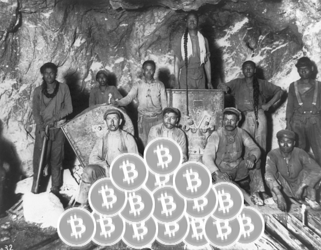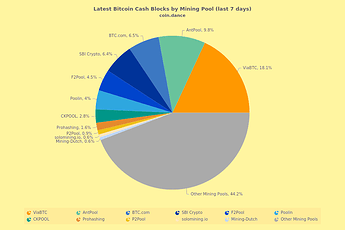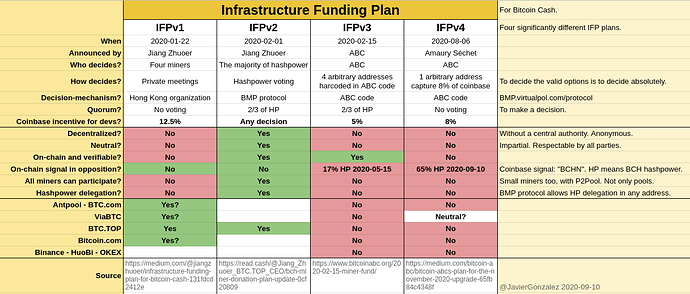Miners are not necessarily BCH stakeholders, they are now SHA-256 hardware “stakeholders”. It was not like that in the beginning but specialization and decoupling of roles happened naturally. BTC now pretty much ensures that they have a place to sell their hashes. If some miners happen to have conviction that BCH is worth spending extra time/money (other than just being plugged into a hash-balancer), then great for us, but giving a damn about BCH is not a prerequisite for being a SHA-256 miner and getting a ROI on SHA-256 hardware with BTC. If its a matter of technical survival (hash war), sure, we have enough of those who care about our survival as they have proven in the past, and stepping in in case of a hash war is within their competence and a logical thing to do given their position. But then we can ask ourselves - who paid for the hashes? Them, or did some business support their losses? Who is really the stakeholder in BCH survival? Nobody owes “us” any transparency, especially miners. We can appeal for it, but they can ignore our appeals without any consequence. Mining is something anonymous by design. They have full freedom to choose how and when they’ll communicate and spend their money, why should they pick your or my way?
If it’s a matter of economic survival (utility, adoption, market cap), that’s not their problem anymore because they have BTC. Economic survival is “our” problem now. If you think of miners as investors - guess what, investors don’t do a company’s work, they set a board and CEO does the work, and investors sit back and take the profits for risking their money, not doing our work for us. Who’s our CEO? We don’t have one, but we have a loose leadership that’s pushing developments forward. It was not miners who created BigInt and Introspection CHIPs. Stop looking at miners for anything other than hashes, and stop projecting your dreams of solving governance on them or them voting a crypto Steve Jobs into existence. There’s simply no incentive to get involved unless something threatens the market for SHA-256, and having BTC have its protocol locked as a feature and now being the darling of big tech and big finance - they can feel safe for a long while, so why would they get involved in directing a minority coin?
Is there a company where shareholders vote on every decision by the company? No, why do you think that is? Because being able to buy a share of something doesn’t make someone automatically competent to make decisions about that business. Shareholders elect a leader, and then he does all the work, unless he sucks, then shareholders get together to kick him out an place a new leader, or if shareholders are dumb then the company dies and is replaced by another. Smarter shareholders see the future more soon so naturally they dump the shares first, and let others dream about salvaging whatever is left of the company. That’s what’s happening with crypto, too, but the process is opaque. Only the money movement is transparent on the blockchain, but everything else is not.
What if you’re a majority shareholder in Microsoft and a minority shareholder in Blackberry? Would you give a damn about Blackberry when it’s few % of your portfolio?
We gotta take some market cap for miners to start caring, and they’re not the ones who’re gonna make it happen. It’s “us”.





